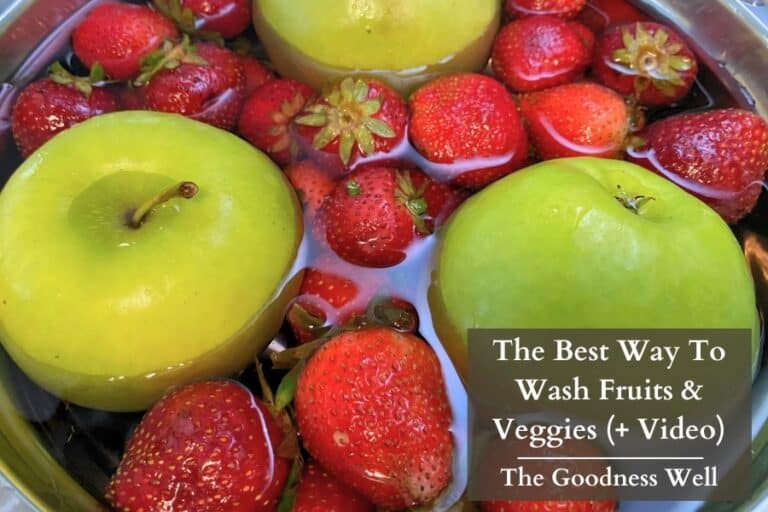Regenerative Eggs: The Latest Food Label Explained
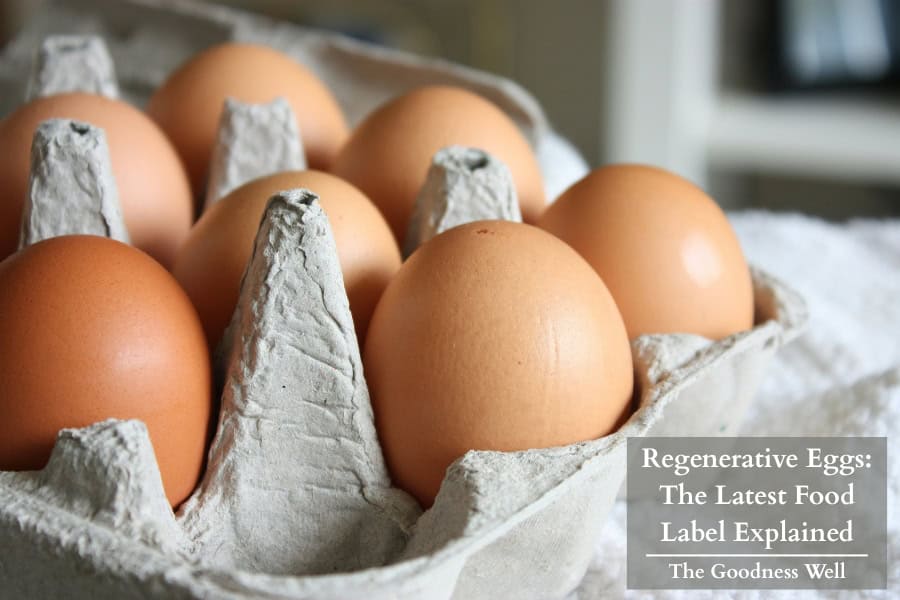
If you’ve been grocery shopping lately, you might have noticed a new term popping up on egg cartons: “regenerative“.
Alongside the familiar “organic,” “free-range,” and “pasture-raised” labels, this latest buzzword is showing up more and more.
But what does it actually mean, and should you care?
Lucky for you, I’ve got the answers! Let’s get into it.
The Egg Hierarchy
First up, lets talk about the different types of eggs.
Think of egg types as a spectrum of how chickens are treated and raised.
Here’s the main differences between the types of eggs:
Conventional: These are chickens raised in small cages, indoors, minimal space to move(the worst environment for a chicken to be raised in👎). Not to mention the diet of conventionally raised chickens is primarily commercial grain-based feeds (corn, soy, wheat).
These birds have no access to natural foraging and rely entirely on provided feed.
Cage-Free: These chickens aren’t kept in individual cages but are still kept indoors in large barns. Think a whole lot of chickens stuffed in one big cage instead of individual cages…better but not by much.
These chickens primarily feed on grain-based feeds (corn, soy, wheat) and have no access to natural foraging.
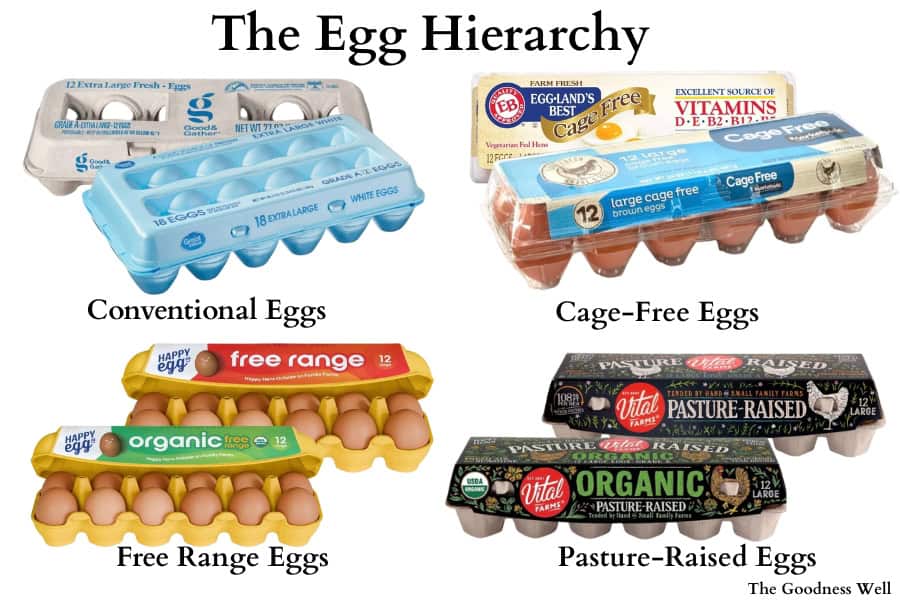
Free-Range: Free-Range chickens are cage free hens with outdoor access.
These birds feed on commercial feed as their primary nutrition source, but also have access to outdoor foraging where they consume grass, seeds, insects, worms, and other natural foods.
Pasture-Raised: These chickens spend most time outdoors with significant space, usually about 108+ sq ft per bird.
These birds receive some supplemental commercial feed (especially in winter or poor weather), but they spend most of their time on pasture actively foraging.
This means their diet includes grass, clover, seeds, insects, worms, grubs, and other plants and critters. As a results, their meat and eggs have different nutritional profiles – such as higher amounts of omega-3 fatty acids, vitamin E, and beta-carotene.
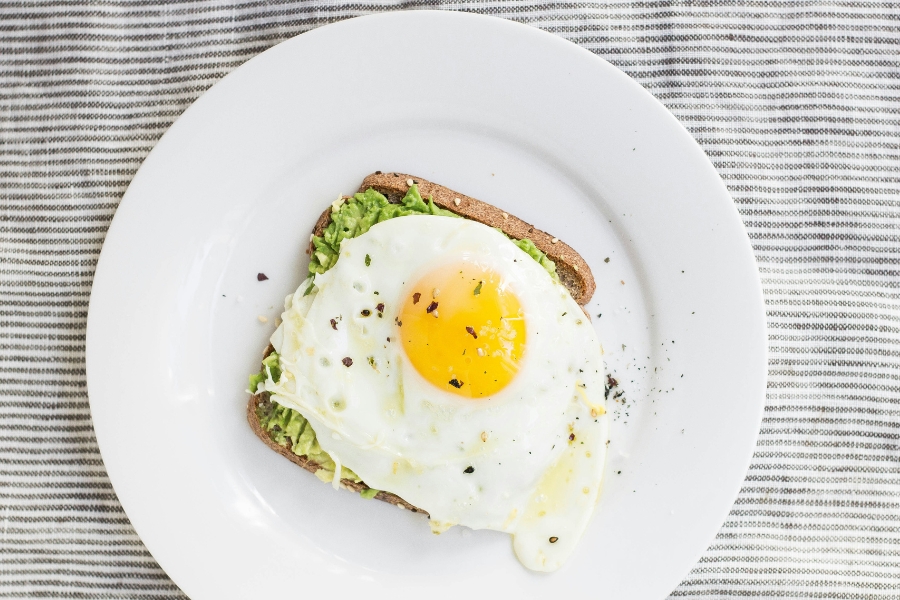
What about Organic?
According to the USDA, “Certified organic eggs are from uncaged hens that are allowed free range of their houses & access to outdoor spaces. They are fed an organic diet produced according to NOP standards.”
Organic Egg Requirements:
- Hens must eat 100% organic feed – no GMOs, synthetic pesticides, herbicides, or fertilizers used in growing the feed
- No antibiotics, growth hormones, or artificial additives in feed
- Feed ingredients must be certified organic
- Hens must have access to the outdoors (though the amount and quality of outdoor space isn’t strictly defined)
- Cannot be kept in battery cages
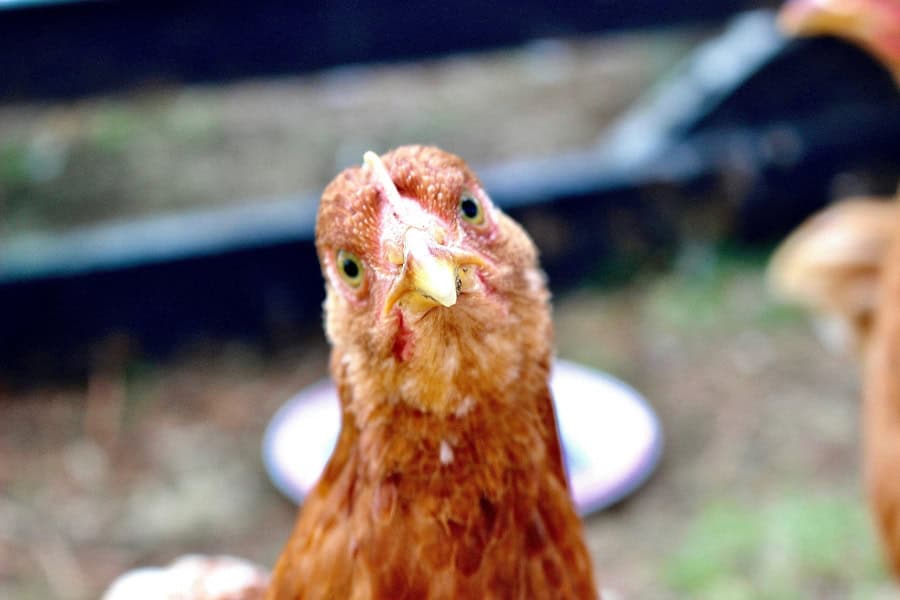
What Makes Eggs “Regenerative”?
While pasture-raised focuses on giving chickens a natural life, regenerative goes a step further. It focuses on farming in a way that heals the land rather than just using it.
Here’s what regenerative chicken farming typically looks like:
- Mindful grazing: Chickens are moved frequently around different areas, allowing land to rest and recover
- Soil building: Chicken manure and scratching naturally fertilize and aerate the soil
- Biodiversity: Farms plant diverse grasses, herbs, and even trees rather than single crops
- Integration: Chickens often follow cattle or sheep, eating pest larvae and spreading fertility
- Carbon storage: Healthy grasslands managed this way can actually pull carbon from the atmosphere
Think of it like this: instead of just giving chickens a good life, regenerative farming makes the chickens partners in healing the environment.
Can Eggs Be Both Pasture-Raised And Regenerative?
Absolutely! In fact, a lot of regenerative egg operations are also pasture-raised.
The chickens get to live naturally on pasture while simultaneously helping restore the land through their natural behaviors.
When you see both terms on a carton, you’re typically getting eggs from chickens that lived outdoors with plenty of space and were part of a farming system designed to improve the environment over time.

Why Are Brands Jumping on This Term?
Several factors are driving the regenerative trend:
- Environmental awareness: More consumers want food that helps rather than harms the planet
- Marketing Tactic: As “organic” and “pasture-raised” become more common, brands need new ways to stand out
- Genuine innovation: Some farms are truly pioneering better farming methods
- Premium pricing: Some brands use environmental benefits to justify higher prices
In short, there are some brands that are using the term to promote healthy farming practices and a better environment while others are using it to raise prices and seem more appealing to consumers.
Is it Worth The Price?
Speaking of price… Regenerative eggs are more Egg-pensive…lol see what I did there?
…But is it worth it?
Regenerative eggs, like pasture-raised ones, typically have higher omega-3 fatty acids, vitamins, and better flavor compared to conventional eggs.
However, the price you should expect to pay is $7-10+ per dozen, similar to or slightly higher than premium pasture-raised eggs(this depends heavily on the brand, grocery store and location you shop at).
Many people notice richer flavor, brighter yolks, and firmer whites.
Lastly, and most importantly, these practices can have meaningful positive environmental impact.
How to Tell if It’s Legit
Food labels can be confusing especially with new terms and since “regenerative” isn’t regulated like “organic,” look for third-party certifications like “Regenerative Organic Certified” is what you should be looking for if you want these types of eggs.
You’ll also find brands that say “Restorative Eggs” and beneath that it’ll say Regenerative Agriculture. This just means what we already discussed as far as eggs produce by hens on a farm that uses regenerative farming practices.
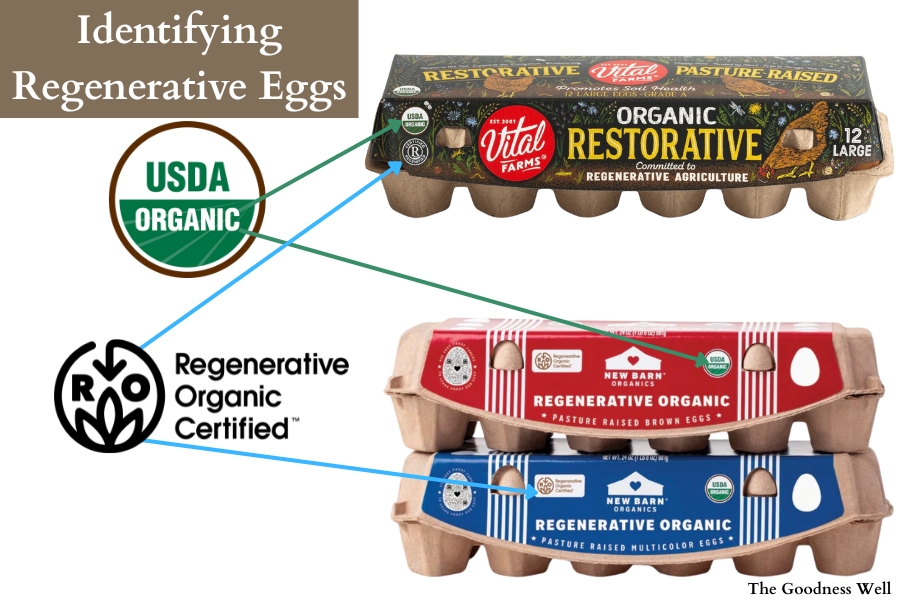
The Bottom Line: Should You Care?
So if prioritize environmental impact in your food choices is important to you and you also value eco-friendly farming practices and don’t mind the price tag that does along with this, than regineraive eggs are right for you.
But if not don’t stress!! Free-range or pasture raised organic eggs are a great choice.
Any movement toward better farming practices is positive, but regenerative agriculture is still developing. The most important thing is choosing eggs from farms whose practices align with your values and budget.
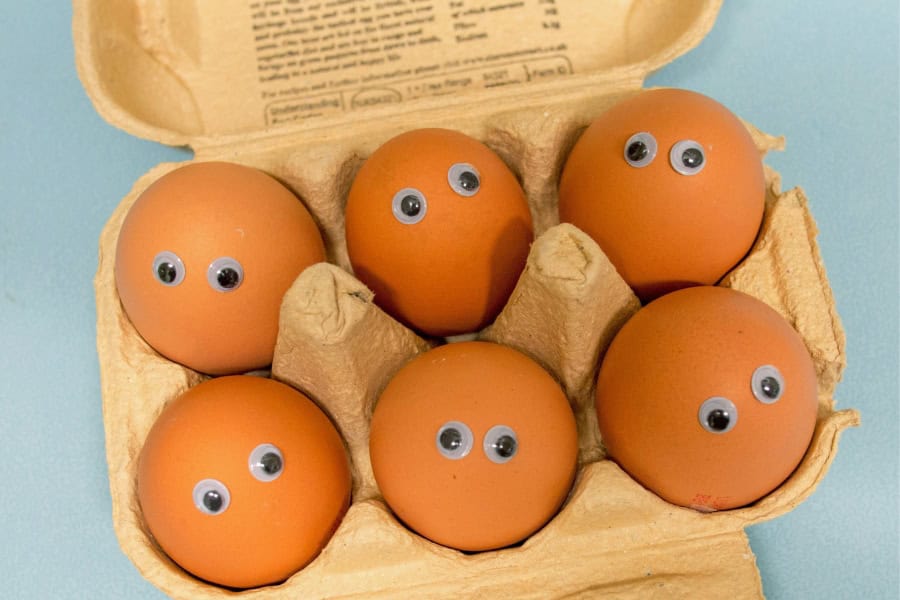
Whether you choose free-range, organic, pasture-raised, or regenerative eggs, the key is understanding what you’re buying so you can make informed choices that work for you and your family.



